
Bjarki Hallgrimsson
Associate Professor
| Building: | Azrieli Pavilion, Room 436 |
| Department: | School of Industrial Design |
| Degrees: | MSE (Stanford University) |
| Website: | http://Carleton.ca/wheelchair |
Biography
Professor Hallgrimsson is a product designer, author, and researcher. After graduating with a mechanical engineering degree and gaining professional experience, he discovered industrial design, which became the passion and focus of his future career. He holds an MSE in product design from Stanford University and has worked for several professional industrial-design consulting firms in the United States and Canada. His own company HPD developed award-winning and patented products for a variety of clients in a broad range of industries. “Prototyping and Modelmaking for Product Design”, by Laurence King Publishing is available in 5 languages and shows how “physical prototypes form a strategic part of a successful product designer’s toolkit”. Although a generalist at heart, his expertise in prototyping and working on community-based projects in Low to Middle-Income Countries continues to drive his interest in design for social prosperity through local and global north-south collaboration between universities and local organizations. Professor Hallgrimsson grew up in Sweden, Kenya, and Tanzania.
Research
Professor Hallgrimsson leads undergraduate and graduate students in research on practical prototyping methods, technologies, and applications. This has included diverse projects in collaboration with other disciplines. Currently, he is a co-principal investigator on the Gendered Design in STEAM project https://carleton.ca/id/more/gendered-design-in-steam/, where he has provided expertise on prototyping methods for use in creating dialogue and a more participatory process of community engagement in social innovation projects. Another current research interest is in collecting, cataloging, and narrating industrial design history. This has been made possible through collaboration with both the Department of History and the Department of Art and Architectural History at Carleton.
Research Projects
| Gendered Design in STEAM
2019-2022 |
Carleton’s School of Industrial Design in collaboration with the Department of History has received $1,100,000 from the Foundations for Innovation Program of the International Development Research Centre (IDRC) to manage and coordinate calls for gender inclusive technological design in science, technology, engineering, the arts and math (STEAM) projects in low-and-middle-income countries (LMIC). |
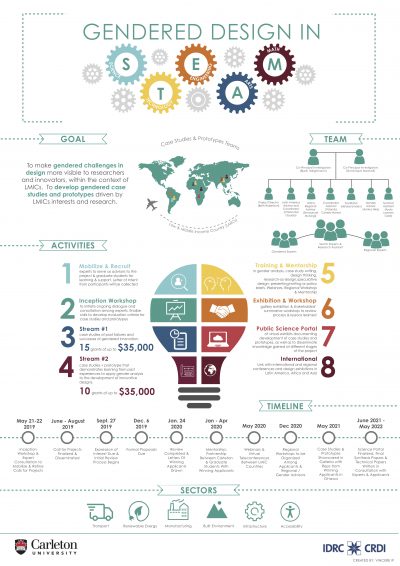 |
|
| Prototyping and Modelmaking for Product Design
1st Edition, 2012 and 2nd Edition 2020 |
Prototyping and ModelMaking for Product Designgoes behind the scenes to illustrate how prototypes are used to help designers understand problems better, explore more imaginative solutions, investigate human interaction more fully and test functionality so as to de–risk the design process. Following an introduction on the purpose of prototyping, specific materials, tools and techniques are examined in detail, with step–by–step tutorials and industry examples of real and successful products illustrating how prototypes are used to help solve design problems. Workflow is also discussed, using a mixture of hands–on and digital tools.
The first chapters of the book explain why prototyping is so important to the design process. The many uses of prototyping will be shown in the context of several comprehensive projects by some of the world’s leading design firms. The second part is an introduction to the typical materials used by designers in their prototyping efforts and how to work with them. In all cases, the approach is to use digital and manual tools in a complementary and effective fashion. Tutorials were specifically developed that underline the back and forth of digital and manual ways of working. The emphasis is on the kinds of construction that can be done by the designers themselves. Health and safety are stressed in terms of personal responsibility and awareness. Topics covered include:
|
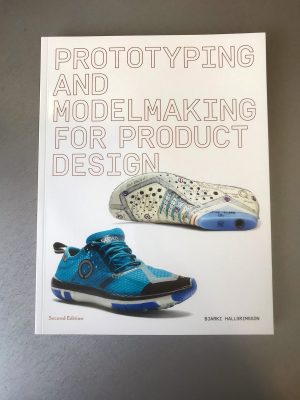 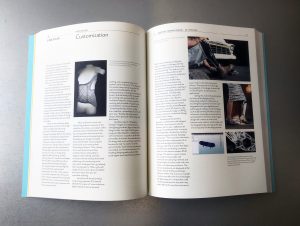 |
|
| The Made in Africa Mobility Lab
2012-2017 |
Since the program’s inception in 2012, we have had undergraduate and graduate students at Carleton’s School of Industrial Design contribute to designing new devices as well as engaging in research that addresses some of the overarching program questions. This has been accomplished through funding from the IDRC (International Development Research Centre) in Ottawa, Canada, and most recently the Promobilia Foundation in Stockholm, Sweden. |
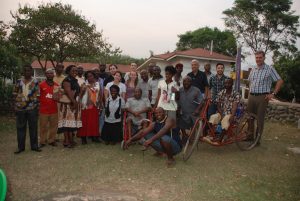 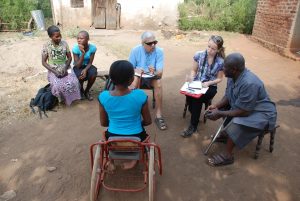 |
|
Publications:
https://carleton-ca.academia.edu/BjarkiHallgrimsson
https://scholar.google.ca/citations?user=CxBDO7EAAAAJ&hl=en&oi=ao